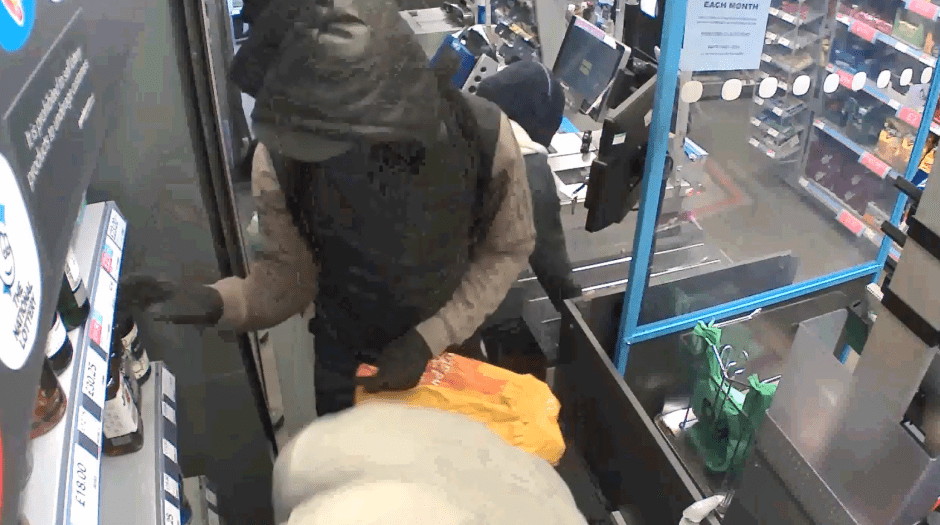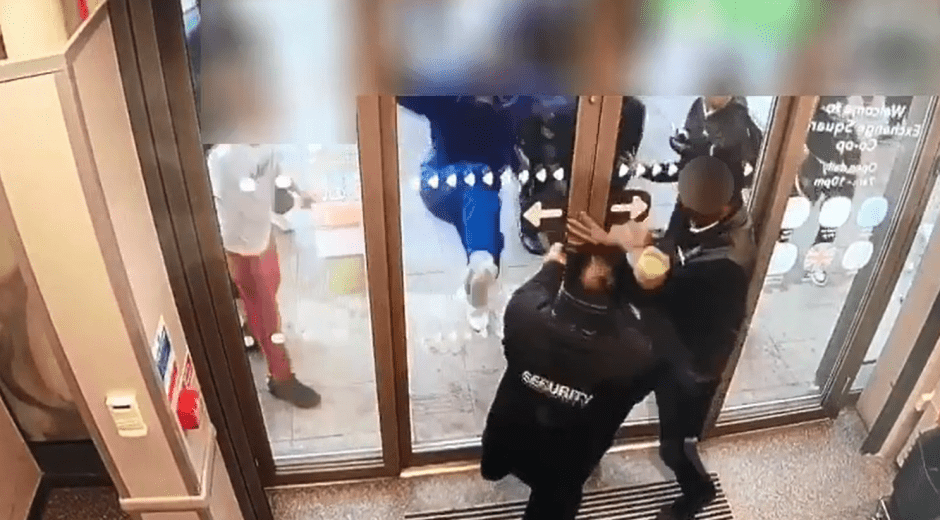New retail crime figures from the Co-op Group show that its security teams detained serious offenders on nearly 3,000 occasions – but police failed to attend 76% of these incidents.
The Group, which released the figures today (13 November) for the start of union Usdaw’s Respect for Shopworkers Week repeated its welcome for the government’s new Retail Crime Action Plan, but warned that there is a long way to go to address the problem which has reached record levels.
It says failure to act by police has led to a “dangerous ‘pressure cooker’ environment that puts store workers and communities at risk”.
Last month, the Retail Crime Action Plan outlined an intention to ensure police attendance in stores to tackle violence; where prolific offenders or youth offender have been detained and, to ensure all evidence is collected so that every reasonable line of enquiry is followed – a vital step, currently all too often missing in the police response.
Related: Co-op Group welcomes national plan by police to tackle retail crime
Matt Hood, managing director of Co-op Food, said: “We are pleased that the serious issue of retail crime, which impacts our communities so dramatically, has been acknowledged, and that police chiefs have committed to attend incidents where the offender is detained.

“It is a welcome and reassuring move, which should complement the £200m we’ve invested in colleague and store safety. But, we very urgently need to see it in action in our stores, so the desperate calls to the police from my front line colleagues are responded to and the criminals start to realise there are real consequences to their actions.”
The Group says it has this year experienced almost 300,000 incidents of shoplifting, abuse, violence and anti-social behaviour this year. This marks a 43% increase on last year and means around 1,000 incidents every day across its 2,400 stores. The convenience retailer has also seen over 1,130 physical assaults (up 35% year on year) against store workers, and more than 36,000 incidents (up 39%) of anti-social behaviour and abuse.
But the retailer says that where the serious incidents are prioritised, and clear co-operation with the police exists, it is a solvable issue.
“Where there is an established and effective partnership approach, forces such as Nottinghamshire, Essex and Sussex have, this year, removed 56 prolific offenders off the streets, with a combined 26 years of custodial sentences,” it adds. “A further 31 repeat offenders were given a Criminal Behaviour Order (CBO) or rehabilitation.

“This year Co-op has more than doubled its partnerships and works closely with over a quarter of UK police forces towards solving retail crime, but many more areas need to step up now and work with Co-op and other retailers to make a real impact at pace.”
Inspector Ollie Vale, Nottinghamshire Police, said: “Working with partners such as Co-op, NBCC, NBCS and Mitie has allowed us to focus on those who would commit the highest levels of harm in our communities. These individuals are often those with the most complex needs and the work with our partners allows us to take enforcement action, but most importantly, allows for us to ensure supportive and diversionary opportunities are capitalised on to help break the cycle of offending.
“This is not an issue that the police alone can enforce our way out of, working with our partners both in public sector and retail and understanding the limitations and challenges being faced allows for better results for victims and offenders. The importance of information sharing and working together cannot be emphasised enough.”
To mark Respect for Shop Workers week, the Group is inviting over 50 MPs and a number of PCCs into its stores across the UK this week, to really bring home the impact retail crime has on colleagues.
Paddy Lillis, Usdaw general secretary, said: “These Co-op findings on police responses are extremely worrying and need to be addressed, because there is an epidemic of shoplifting that too often triggers abuse of shop workers. We are concerned that successive government policies give the impression that theft from shops has effectively been decriminalised.
“Underfunding of the police, with too few uniformed officers patrolling our communities; fixed penalty notices for thefts under £200, leading to too few of these crimes being investigated and prosecuted, and the recent announcement that fewer ‘low-level offenders’ will not be sent to prison. Our members are not only in fear of being a victim of crime, they are distressed that too few criminals are being caught and punished. That is why we are jointly calling for a protection of workers law, a standalone offence of assaulting or abusing a worker serving the public.”
The Group has invested more than £200m over recent years in colleague and store safety and security, including the latest CCTV; body-worn cameras – capturing real time audio and visual footage at the touch of a button and, dummy (or empty) packaging to deter looting and bulk-theft.
It also uses covert (undercover) and non-covert guarding. With crime a flashpoint for violence, abuse and attacks on shop workers, only specially trained security operatives detain criminals.
The wider co-op movement has also been active on the issue, with independent retail societies and the Co-op Party joining calls for tougher laws on retail crime. The Party hosted a Zoom discussion of the problem last month, with guests including the Group’s public affairs director Paul Gerrard and Labour/Co-op police and crime commissioner for Merseyside, Emily Spurrell, and issued a call to Police Scotland to use their new powers to protect retail workers.
Midcounties Co-op has also released a statement for Respect for Shopworkers Week.
“We have seen a 125% increase in incidents involving violence against our colleagues,” it said, “so now more than ever it is prevalent that we lobby for change to make violence towards retail workers a criminal offence.
“We as a society are working with police and crime commissioners, one of whom attended our Managers Conference, to ensure that tackling retail crime is pushed up the police’s agenda.”
Other measures across the retail movement include the continued use of the Co-op Secure Response team at East of England Co-op; use of facial recognition technology at Southern Co-op; and investment in headsets, security guarding, centrally monitored CCTV and body cams at Central Co-op. Central is also running its Offender to Rehab scheme in partnership with West Midlands Police. This offers support to regular offenders, “identifying the cause of their offences and making sure they go to the correct rehabilitation facilities”.

